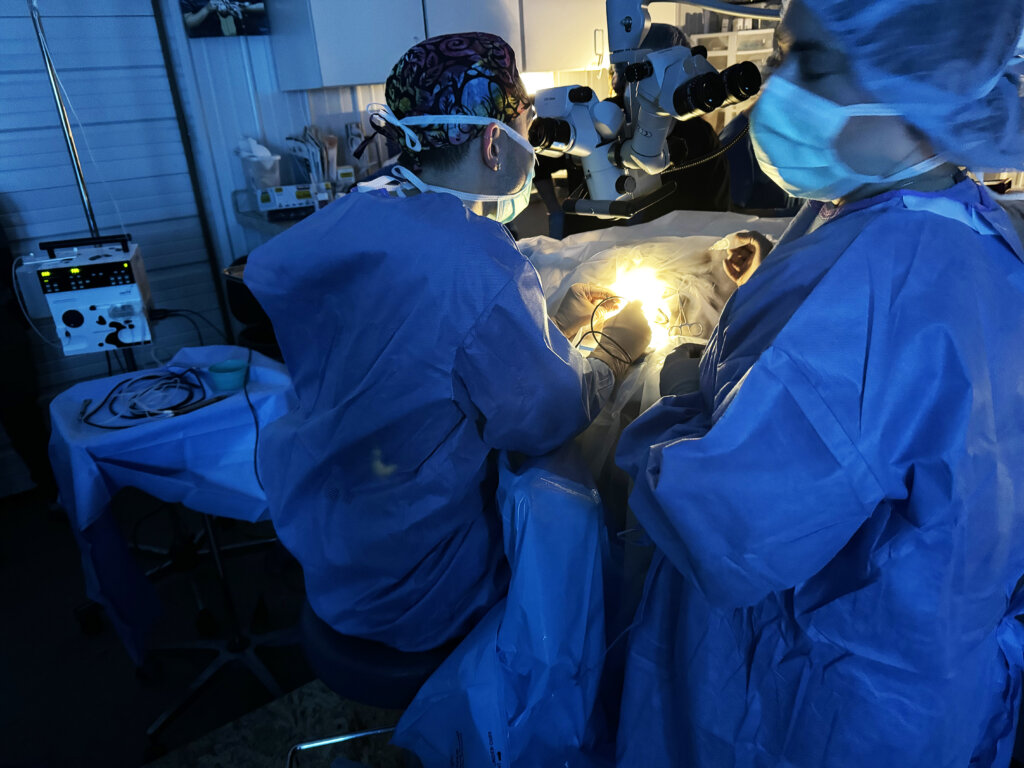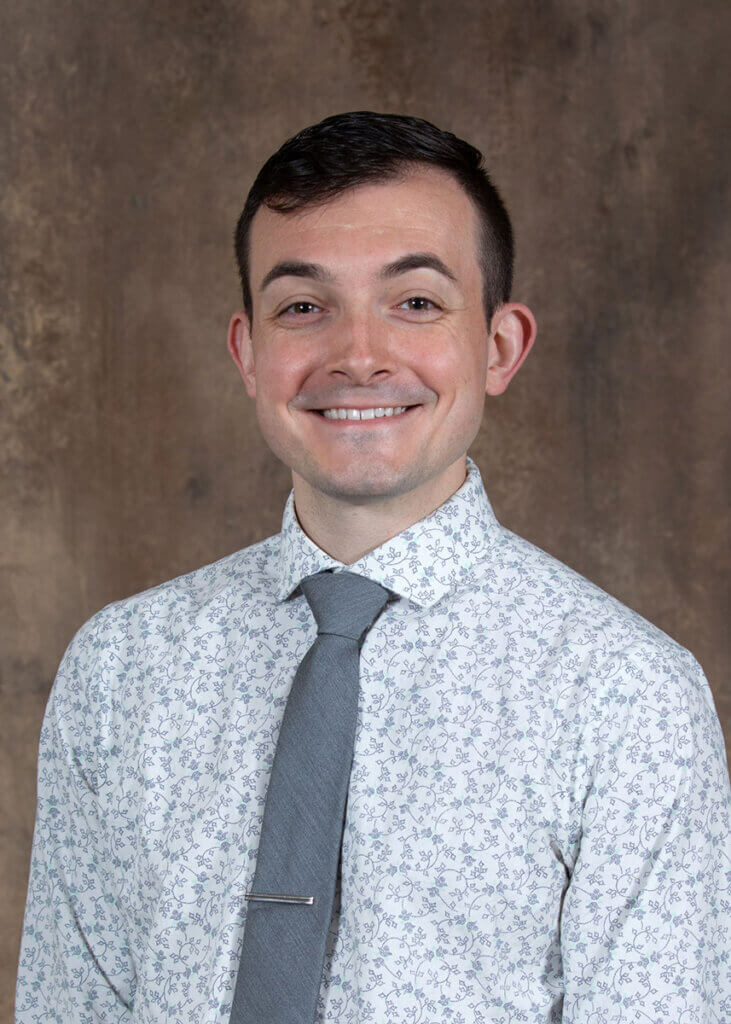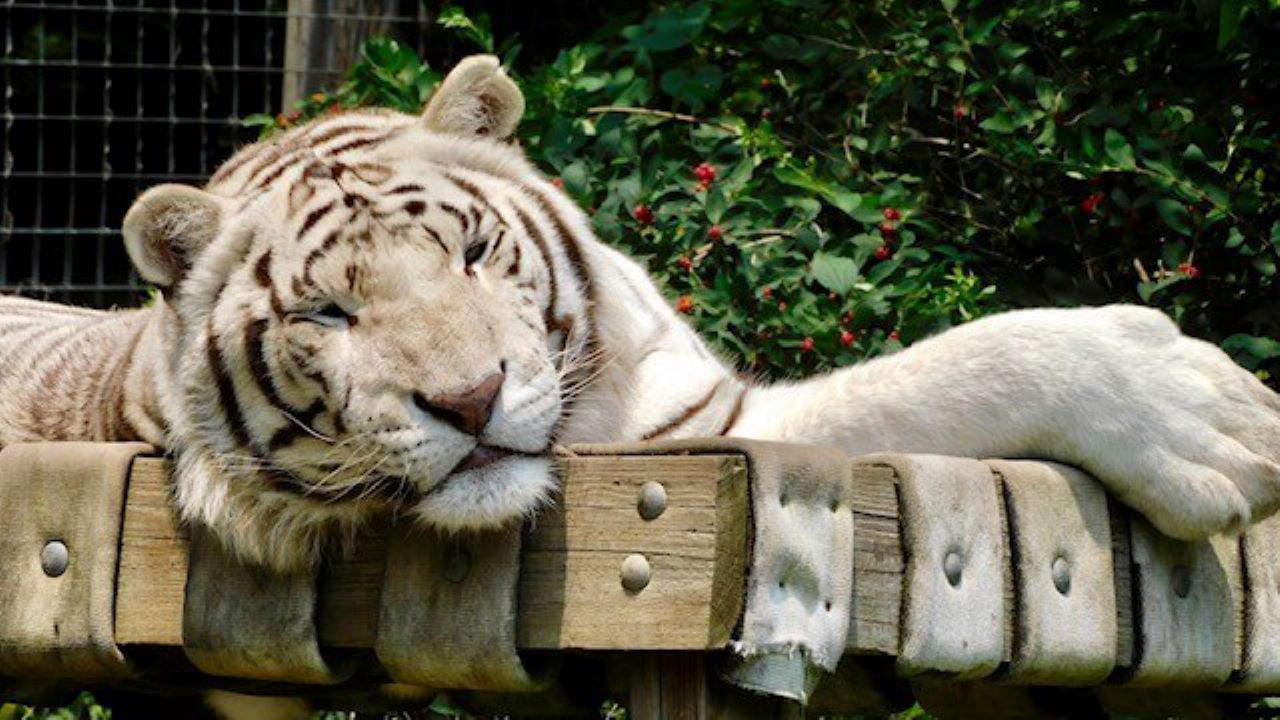The Purdue University Veterinary Hospital’s ophthalmology team recently conducted a life-changing surgery for Prince, a six-year-old white tiger residing at Black Pine Animal Sanctuary (BPAS) in Albion, Indiana. The procedure marked a significant step in restoring the tiger’s vision, which had been severely impaired due to poor breeding practices and inadequate care in his earlier years.
Prince’s journey to the sanctuary began in 2021 when BPAS took over the care of four tigers from the Greater Wynnewood Exotic Animal Park in Wynnewood, Oklahoma. The park, once owned by the infamous Joseph Allen Maldonado, also known as “Joe Exotic” from Netflix’s Tiger King, was closed to visitors after an investigation revealed mistreatment of animals. Among the four tigers rehomed at Black Pine, Prince in particular suffered from his deteriorated vision, which was comparable to that of a senior tiger despite his young age. Dr. Levi Smith, Purdue ophthalmology resident in the Department of Veterinary Clinical Sciences and one of the surgeons who operated on Prince, says that “white tigers in general are typically born with inherited, or genetic, problems. For Prince, that meant the development of genetic cataract in one eye.”
The Purdue Ophthalmology team, which included Dr. Smith, Dr. Morgan Johnson, clinical assistant professor of ophthalmology, and Megan Scheulin, BS, RVT, ophthalmology veterinary technician, performed cataract removal surgery on Prince on October 30.
Before the surgery, significant preparation had to take place. Prince was trained for three months with eye drops. Dr. Johnson noted BPAS’ care and preparation for Prince’s procedure, saying “Black Pine’s commitment to making it a success was remarkable. He was very lucky to end up with Black Pine where he receives such excellent care!”

After the surgery, Prince benefited from a lens insertion that was designed just for him. This is particularly notable, as Dr. Johnson explained, saying, “Ready-made lenses are only available for a few species – dogs, cats, horses and rabbits – so Prince needed a custom lens made to the correct size to fit his eye and the correct power to focus his vision.”
The operation was made possible thanks to the generosity and collaboration of numerous organizations and individuals including the Albion, Indiana restaurant One10 West Main; Tigers in America; several donors; veterinary teams from Purdue University and the Fort Wayne Children’s Zoo; engineers from Oertli Instrumente AG, Switzerland; an-vision Inc.; and Prescott’s, Inc. The collective time, resources, and equipment that were provided made it possible for Prince to receive the needed care.

Post-surgery, Prince has shown remarkable improvement. Caregivers report he is noticeably more engaged and curious, exploring his surroundings with a newfound sense of wonder. According to BPAS, Prince can sometimes be seen watching people at the gift shop entrance from his enclosure, which is a great distance away. Given that this is a recent development, this is a promising sign that his vision is better. His recovery underscores the critical role of advanced veterinary care and the power of community collaboration in improving the quality of life for exotic animals. A video created by Black Pine Animal Sanctuary about Prince’s procedure can be viewed by clicking here.
As he completes the final year of his ophthalmology residency at Purdue, Dr. Smith hopes to continue his ophthalmology work, and advocate for a true understanding of exotic animals like Prince. “My whole career, I have focused my education on exotic animal species. Being able to participate in Prince’s surgery was a task that I worked adamantly to achieve with the help of our faculty, nurses, and the staff at Black Pine Animal Sanctuary. My goal as I finish my training this year is to continue to devote my extra out-of-work time to continue helping zoo, wildlife, and exotic pets in the realm of ophthalmology.”

